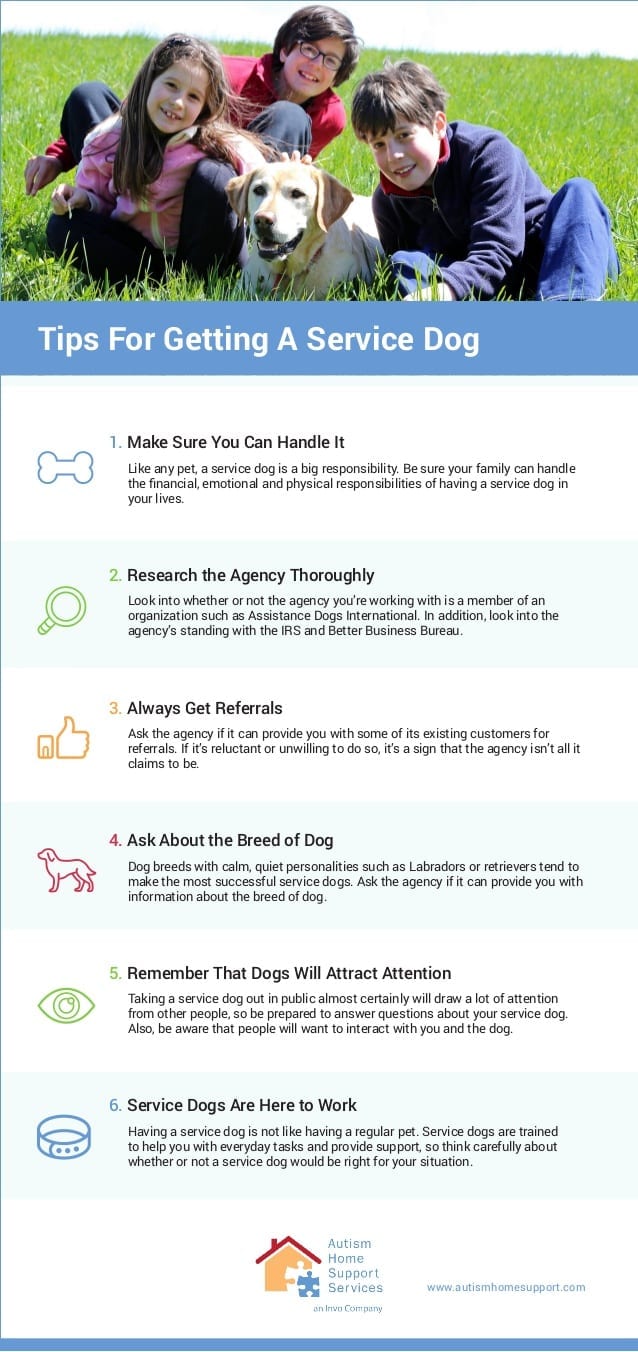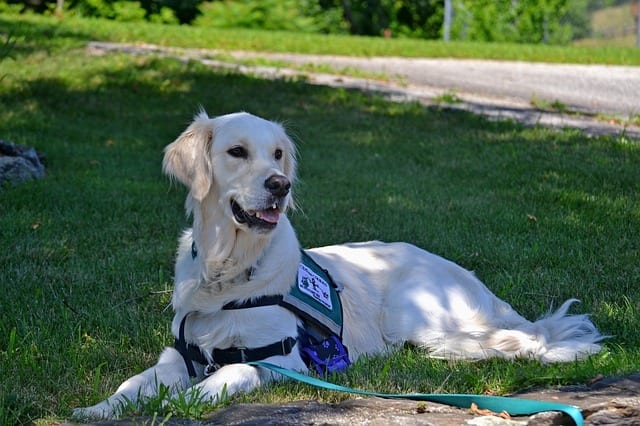For children with disabilities, service dogs can be wonderful assets. These animals undergo lengthy and exacting training to enable them to help with everything from completing daily tasks to surviving emergency situations. If you’re thinking about getting a service dog for your child, here are some helpful considerations.
What is a Service Dog?
A service dog has been trained and officially certified to help a person who has a disability. Common examples include dogs that provide assistance to those who have visual or hearing impairments or disabilities involving mobility, sensory processing, psychiatric conditions and more. Various breeds can perform as service dogs, although retrievers and Labradors are among the most successful due to their calm and quiet personalities.
What’s the Difference Between a Service Dog and a Therapy Dog?
Any well-trained family pet can provide a calming influence, particularly for children with autism or other neurological or behavioral disorders. What sets a service dog apart is its training and skills. A service dog is officially certified to perform specific functions that aid a person who has a disability. As such, it is allowed to accompany its owner in any public place, per the Americans with Disabilities Act. A therapy dog also may be specially trained, but it’s main purpose to offer affection and comfort. With proper training, either a service dog or a therapy dog can be helpful to a child.
As a parent or caregiver looking out for the best interests of a child with a disability, you may be interested in getting a service dog. If so, there are some key tips you’ll want to keep in mind. Take a look at the attached resource to learn more.

Created by Autism Home Support Services a provider of ABA therapy in Chicago, Denver, and Michigan
Author bio: Shelly Andrews is Director of Marketing at Autism Home Support Services — a leading provider of in-home, one-on-one services to children with autism spectrum disorders (ASD). The company’s mission is to provide quality, evidence-based ABA therapy and counseling to children with ASD and their families in the home.











